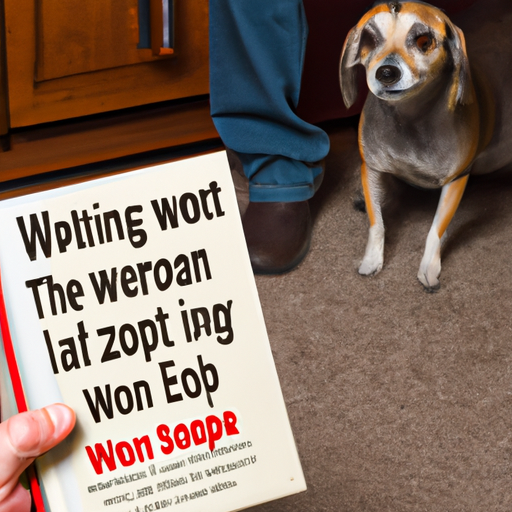It’s an issue that many pet owners face, but it’s one that can be managed with patience, understanding, and appropriate training methods. Excitement urination in dogs is not uncommon, especially in puppies and young dogs, but it can be a source of frustration for many dog owners.
Understanding Excitement Urination
Excitement urination happens when a dog loses control of its bladder in moments of extreme excitement or stress. It’s a completely involuntary action, and punishing your dog for it will only make things worse. It’s crucial to understand that your dog is not doing this on purpose, and it’s not a sign of a poorly trained dog.
When it comes to excitement urination, it’s all about understanding your dog’s triggers. These could be anything from seeing you after a long day at work, the prospect of a walk, or the arrival of a new person or pet in the home.
Identifying Triggers and Managing Excitement
To manage excitement urination, start by identifying what triggers your dog. Here are some common triggers:
- Your arrival home
- Meeting new people or dogs
- High-energy play
- Loud noises
Once you’ve identified the triggers, you can start to manage your dog’s excitement levels. This could mean changing the way you greet your dog when you come home, or introducing new people or pets in a calm, controlled manner.
Training Techniques
There are several training techniques you can use to help your dog manage their excitement and, in turn, their excitement urination. Here are a few to try:
- Ignore Excitement: When your dog is overly excited, ignore them until they calm down. This can help teach them that calm behavior gets attention, not excited behavior.
- Obedience Training: Teaching your dog basic obedience commands can help them learn to control their excitement.
- Reward Calm Behavior: Whenever your dog is calm in a situation where they would usually get overly excited, reward them with praise or a treat.
Seeking Professional Help
If your dog’s excitement urination persists despite your best efforts, it may be time to seek professional help. A professional dog trainer or a behaviorist can provide further insight into why your dog is experiencing excitement urination and can provide personalized training techniques to help manage it.
Addressing Medical Issues
It’s worth mentioning that while excitement urination is often a behavioral issue, it can sometimes be a sign of a medical problem. If your dog’s excitement urination is accompanied by other symptoms such as frequent urination, blood in the urine, or signs of discomfort, it’s essential to consult with your vet immediately.
| Symptoms | Possible Cause |
|---|---|
| Frequent urination | Urinary tract infection |
| Blood in the urine | Bladder stones |
| Signs of discomfort | Urethral obstruction |
FAQ
Q: Is excitement urination a sign of a poorly trained dog?
A: No, excitement urination is an involuntary action and not a sign of poor training.
Q: Is excitement urination common in certain breeds?
A: Excitement urination is more common in puppies and young dogs than in specific breeds.
Q: Can excitement urination be a sign of a medical problem?
A: While it’s often a behavioral issue, excitement urination can sometimes indicate a medical problem, especially if it’s accompanied by other symptoms. If you’re concerned, it’s best to consult with your vet.
Remember, patience and understanding are key when dealing with excitement urination in dogs. With the right approach, you can help your furry friend manage their excitement and lead a happier, healthier life.



